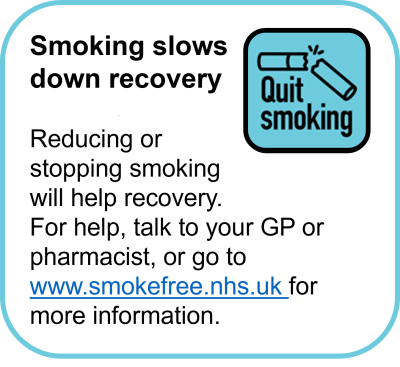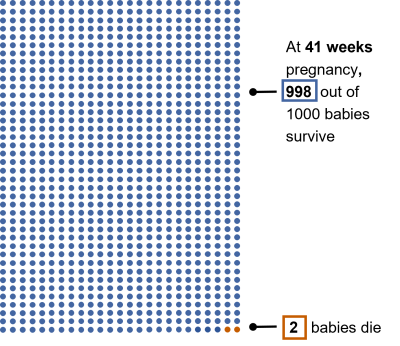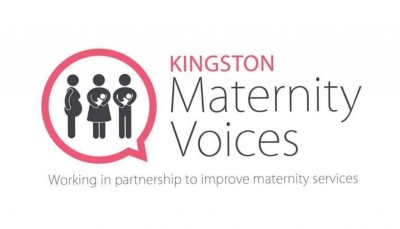Neurodiversity information for parents and young people
In women aged 40 and above, most pregnancies will be straightforward for both mother and baby. Here we explain what additional care we offer during pregnancy and labour.
At Kingston hospital, nearly 1 in 10 women having a baby is 40 years old or more. Average maternal age in the UK is increasing.
What conditions are more likely
Raised blood pressure
Roughly 10 in 100 women over the age of 40 will develop high blood pressure in pregnancy.
Around 2 in 100 will develop pre-eclampsia (high blood pressure and protein in the urine).
You can help reduce your chance of high blood pressure or pre-eclampsia by:
- eating a healthy diet during pregnancy
- taking regular exercise, such as walking, running, swimming
- taking aspirin every day (150mg every evening, from 12 to 36 weeks of pregnancy). Your midwife will advise you about this.
Diabetes
Diabetes can develop in pregnancy. It causes a person’s blood sugar level to become too high.
If it is not spotted early and managed properly, diabetes can cause problems for you and your baby during pregnancy and after the birth.
Diabetes during pregnancy is more likely in women who are overweight and aged 40 years or more.
You can help reduce the chance of developing diabetes by:
- eating a healthy diet during pregnancy, avoiding sugary food and drinks
- taking regular exercise, such as walking, running or swimming. Walking for 30 minutes after a meal can help reduce blood sugar levels.
At every antenatal check, your midwife will test your urine. If you have sugar in your urine, we will recommend a screening test for diabetes, known as a glucose tolerance test (GTT). You will also be offered a GTT if you have other risk factors (such as a family history of diabetes) or if you are 45 years old or more.
Blood clots
A blood clot in a vein is called a ‘venous thrombosis’. It can be a serious condition because the clot can break off and travel in the bloodstream until it lodges in another part of the body, such as the lung. This is called a ‘pulmonary embolism’ and can be life threatening.
Blood clots are not common in pregnancy or after the birth of your baby. However, the likelihood of developing a clot is 10 times more likely in pregnant women aged 40 years or more compared to women of the same age who are not pregnant.

You can also reduce your chance of developing a blood clot during pregnancy and after giving birth by:
- being active
- drinking around 6 to 8 glasses of water or fluid a day (including hot drinks)
- stopping smoking.
Report signs of a clot
Get help immediately if you experience any of the following symptoms:
- sudden unexplained difficulty in breathing
- tightness in the chest or chest pain
- coughing up blood
- feeling very unwell or collapsing.
Small or big babies
Pregnant women aged 40 years or older are more likely to have a baby that is small, slows down in their growth, or grows too big. This is more likely in women who develop pre-eclampsia or diabetes, which is more common in older women
Your midwife will measure your abdomen at every antenatal appointment from 24 weeks onwards. This is to check that your baby’s growth is normal. You will also be offered an ultrasound scan at 36 weeks to check your baby’s growth. Some women are offered additional scans if there are other risk factors present.
You can reduce the chance of having a small or big baby by:
- eating a healthy diet during pregnancy
- taking regular exercise (such as walking, running, swimming)
- stopping smoking
- taking aspirin every day (150mg every evening from 12 to 36 weeks pregnancy). Your midwife will advise you about this.
When you will give birth
We recommend that you give birth around the time of your due date.
Most babies born in the UK are healthy at birth. The chance of your baby dying before it is born (a ‘stillbirth’) is very low. But the risk is slightly higher in mothers who are aged 40 or more. And the risk increases a little after 40 weeks of pregnancy.

The chance of stillbirth at 40 weeks is:
- about 2 in 1000 for mothers aged 40 or more
- about 1 in 1000 for mothers aged less than 35 years.
The chance of stillbirth at 41 weeks is
- about 2.5 in 1000 for mothers aged 40 or more
- about 2 in 1000 for mothers aged less than 35 years.
If you are 40 years old or more and you have not gone into labour naturally by around 40 weeks, we recommend induction of labour (starting labour artificially). For more information about induction, speak to your midwife, or attend our online ‘Induction of Labour’ workshop (see link below).
Your midwife will offer you a membrane sweep at around 39 weeks. This is to increase the chance of labour starting without the need for an induction of labour with medication.
It is your choice whether to be induced. If you decide you do not want an induction, we will offer you an appointment with a Consultant obstetrician or Consultant midwife to make a plan with you. We will also offer extra monitoring of your baby. However, this does not change, reduce or predict the risk of stillbirth. It provides a snapshot of how your baby is at that moment.
Birth in the Birth Centre or at home
Deciding where and how to have your baby is an important decision for you. We believe that you should give birth in an environment where you feel safe, comfortable and relaxed. 
If you are generally healthy and your pregnancy is straightforward, we recommend you consider giving birth in the Birth Centre or at home. The Birth Centre is run by midwives and is located alongside the Delivery Suite.
If you give birth in the the Birth Centre or at home, your baby’s heartbeat is checked at regular intervals throughout labour.
Women who are aged 40 years or above are more likely to bleed heavily immediately after the birth. We recommend having an injection after your baby is born which helps your placenta to be delivered, helps your womb contract, and reduces the chance of heavy bleeding. This injection can be given wherever you give birth.
If you are 45 years or older
The older you are when you are pregnant, the higher your risk of complications during pregnancy and birth.
If you are aged 45 or more, we will recommend that you see a Consultant Obstetrician during your pregnancy to make a personalised plan of care. We may offer you extra tests and scans, depending on your individual circumstances. We will recommend that you give birth before your due date in our Delivery Suite (if you are planning a vaginal birth) or in Theatre (if you are planning a Caesarean).
More information
- NHS advice on exercise in pregnancy
- Links to Kingston Maternity pages on:
- Homebirth
- Birth Centre
- Delivery Suite (Labour Ward)
- Theatre
- Kingston's Induction of labour online workshop
Thursdays, 10 to 11am
Book through Eventbrite
Contact information
Kingston Maternity
Antenatal appointments:
020 8934 2290 (Monday to Friday, 8.30 am to 4.30 pm)
020 8934 2802 for urgent questions out of hours
